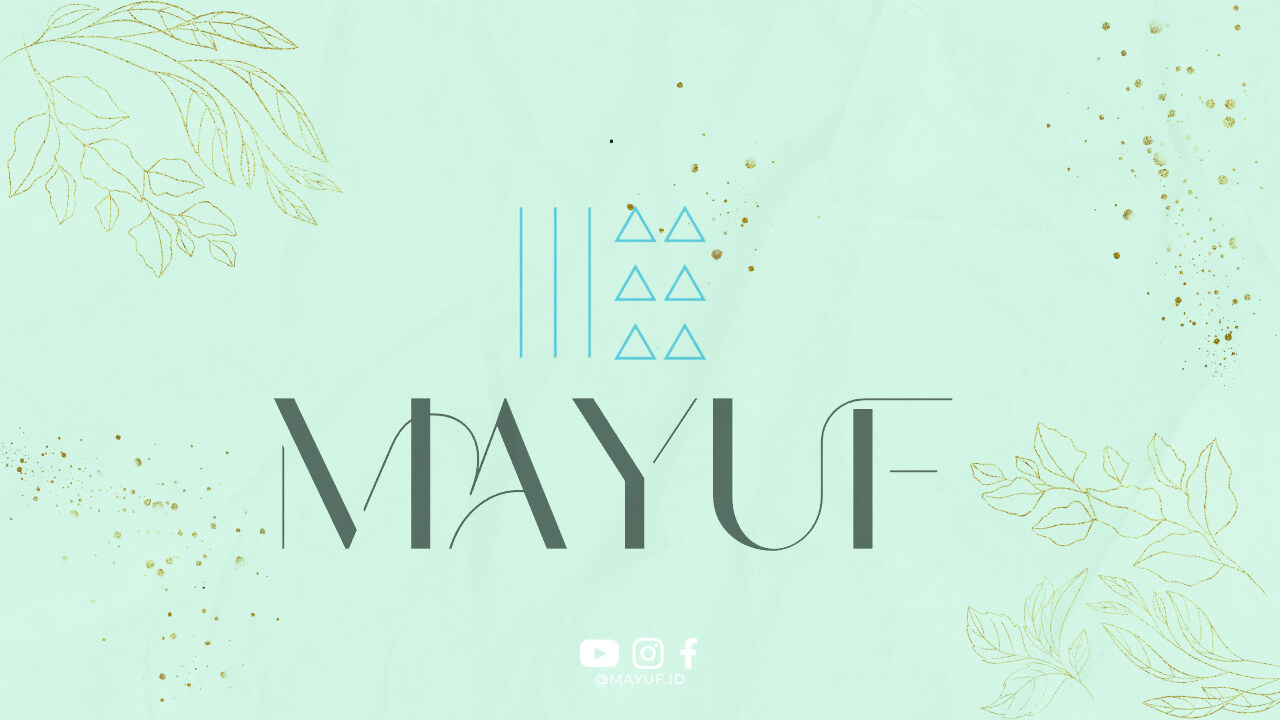Pengantar
Saat belajar bahasa Inggris, kita pasti akan bertemu dengan banyak kosa kata yang perlu dihafal. Dengan memahami arti dari kosa kata tersebut, kita akan lebih mudah untuk berkomunikasi dalam bahasa Inggris. Berikut ini adalah 1000 kosa kata bahasa Inggris beserta artinya yang bisa membantu Anda dalam memperkaya kosa kata Anda.
A
1. Apple (apel) – a type of fruit2. Angry (marah) – feeling of displeasure or hostility3. Airport (bandara) – a place where airplanes take off and land4. Alone (sendirian) – without other people5. Always (selalu) – at all times
B
6. Banana (pisang) – a type of fruit7. Beautiful (cantik) – pleasing the senses or mind aesthetically8. Book (buku) – a written or printed work consisting of pages bound together9. Busy (sibuk) – actively and attentively engaged in work or a pastime
C
10. Cat (kucing) – a small domesticated carnivorous mammal11. Car (mobil) – a road vehicle, typically with four wheels, powered by an internal combustion engine12. Cloud (awan) – a visible mass of condensed water vapor floating in the atmosphere13. Careful (hati-hati) – making sure of avoiding potential danger, mishap, or harm
D
14. Dog (anjing) – a domesticated carnivorous mammal that typically has a long snout, an acute sense of smell, and a barking, howling, or whining voice15. Delicious (lezat) – highly pleasant to the taste16. Dance (menari) – move rhythmically to music, typically following a set sequence of steps17. Dark (gelap) – with little or no light
E
18. Elephant (gajah) – a very large herbivorous mammal with a long trunk, large ears, and tusks19. Excited (gembira) – very enthusiastic and eager20. Eat (makan) – put (food) into the mouth and chew and swallow it21. Easy (mudah) – achieved without great effort; presenting few difficulties
F
22. Fish (ikan) – a limbless cold-blooded vertebrate animal with gills and fins living wholly in water23. Funny (lucu) – causing laughter or amusement; humorous24. Flower (bunga) – the seed-bearing part of a plant, consisting of reproductive organs that are typically surrounded by a brightly colored corolla (petals) and a green calyx (sepals)25. Fast (cepat) – moving or capable of moving at high speed
G
26. Giraffe (jerapah) – a large African mammal with a very long neck and forelegs, having a coat patterned with brown patches separated by lighter lines27. Good (baik) – to be desired or approved of28. Garden (kebun) – a piece of ground, often near a house, used for growing flowers, fruit, or vegetables29. Green (hijau) – of the color between blue and yellow in the spectrum; colored like grass or emeralds
H
30. House (rumah) – a building for human habitation, especially one that is lived in by a family or small group of people31. Happy (bahagia) – feeling or showing pleasure or contentment32. Hat (topi) – a shaped covering for the head worn for warmth, as a fashion item, or as part of a uniform33. Help (membantu) – make it easier or possible for (someone) to do something by offering them one’s services or resources
I
34. Ice cream (es krim) – a sweet frozen food typically eaten as a snack or dessert35. Interesting (menarik) – arousing curiosity or interest; holding or catching the attention36. Insect (serangga) – a small arthropod animal that has six legs and generally one or two pairs of wings37. Important (penting) – of great significance or value; likely to have a profound effect on success, survival, or well-being
J
38. Jellyfish (ubur-ubur) – a free-swimming marine coelenterate with a jellylike bell- or saucer-shaped body that is typically transparent and has stinging tentacles39. Joyful (gembira) – feeling, expressing, or causing great pleasure and happiness40. Juice (jus) – the liquid obtained from or present in fruit or vegetables41. Jump (melompat) – push oneself off a surface and into the air by using the muscles in one’s legs and feet
K
42. Kangaroo (kanguru) – a large plant-eating marsupial with a long powerful tail and strongly developed hind limbs that enable it to travel by leaping43. Kind (baik) – having or showing a friendly, generous, and considerate nature44. Key (kunci) – a small piece of shaped metal with incisions cut to fit the wards of a particular lock, which is inserted into a lock and turned to open or close it45. Kick (menendang) – strike or propel forcibly with the foot
L
46. Lion (singa) – a large tawny-colored cat that lives in prides, found in Africa and northwestern India. The male has a flowing shaggy mane and takes little part in hunting, which is done cooperatively by the females47. Love (cinta) – an intense feeling of deep affection48. Laugh (tertawa) – make the spontaneous sounds and movements of the face and body that are the instinctive expressions of lively amusement and sometimes also of contempt or derision49. Large (besar) – of considerable or relatively great size, extent, or capacity
M
50. Monkey (monyet) – a small to medium-sized primate that typically has a long tail, most kinds of which live in trees in tropical countries51. Music (musik) – vocal or instrumental sounds (or both) combined in such a way as to produce beauty of form, harmony, and expression of emotion52. Moon (bulan) – the natural satellite of the earth, visible (chiefly at night) by reflected light from the sun53. Move (bergerak) – go in a specified direction or manner; change position
N
54. Night (malam) – the period of darkness in each twenty-four hours; the time from sunset to sunrise55. Nice (bagus) – pleasant; agreeable; satisfactory56. Nest (sarang) – a structure or place made or chosen by a bird for laying eggs and sheltering its young57. Name (nama) – a word or set of words by which a person, animal, place, or thing is known, addressed, or referred to
O
58. Orange (jeruk) – a round juicy citrus fruit with a tough bright reddish-yellow rind59. Open (membuka) – allowing access, passage, or a view through an empty space; not closed or blocked up60. Owl (burung hantu) – a nocturnal bird of prey with large forward-facing eyes surrounded by facial disks, a hooked beak, and typically a loud hooting call61. Old (tua) – having lived for a long time; no longer young
P
62. Penguin (penguin) – a large flightless seabird of the southern hemisphere, with black upper parts and white underparts and wings developed into flippers for swimming underwater63. Pizza (pizza) – a dish of Italian origin consisting of a flat, round base of dough baked with a topping of tomato sauce and cheese, typically with added meat or vegetables64. Play (bermain) – engage in activity for enjoyment and recreation rather than a serious or practical purpose65. Pink (merah muda) – of a color intermediate between red and white, as of coral or salmon
Q
66. Queen (ratu) – the female ruler of an independent state, especially one who inherits the position by right of birth67. Quiet (tenang) – making little or no noise68. Quick (cepat) – moving fast or doing something in a short time
R
69. Rabbit (kelinci) – a burrowing, gregarious, plant-eating mammal with long ears, long hind legs, and a short tail70. Rainbow (pelangi) – an arch of colors visible in the sky, caused by the refraction and dispersion of the sun’s light by rain or other water droplets in the atmosphere71. Red (merah) – of a color at the end of the spectrum next to orange and opposite violet, as of blood, fire, or rubies72. Run (lari) – move at a speed faster than a walk, never having both or all the feet on the ground at the same time
S
73. Sun (matahari) – the star around which the earth orbits74. Smile (senyum) – form one’s features into a pleased, kind, or amused expression, typically with the corners of the mouth turned up and the front teeth exposed75. Sing (menyanyi) – make musical sounds with the voice, especially words with a set tune76. Sleep (tidur) – a condition of body and mind that typically recurs for several hours every night, in which the nervous system is inactive, the eyes closed, the postural muscles relaxed, and consciousness practically suspended
T
77. Tiger (harimau) – a very large solitary cat with a yellow-brown coat striped with black, native to the forests of Asia but becoming increasingly rare78. Tree (pohon) – a woody perennial plant having a single main stem or trunk, typically with branches and leaves79. Thank you (terima kasih) – used to express gratitude80. Tall (tinggi) – of great or more than average height
U
81. Umbrella (payung) – a device consisting of a circular canopy of cloth on a folding metal frame supported by a central rod, used as protection against rain or sometimes sun82. Understand (mengerti) – perceive the intended meaning of (words, a language, or speaker)83. Unicorn (unicorn) – a mythical animal typically represented as a horse with a single straight horn projecting from its forehead84. Upset (kecewa) – make (someone) unhappy, disappointed, or worried
V
85. Violet (ungu) – of a color intermediate between red and blue86. Visit (mengunjungi) – go to see and spend time with (someone) socially87. Vegetable (sayur-sayuran) – a plant or part of a plant used as food, typically as accompaniment to meat or fish88. Vacation (liburan) – an extended period of leisure and recreation, especially one spent away from home or in traveling
W
89. Water (air) – a colorless, transparent, odorless liquid that forms the seas, lakes, rivers, and rain and is the basis of the fluids of living organisms90. Wolf (serigala) – a wild carnivorous mammal of the dog family, living and hunting in packs91. Write (menulis) – mark (letters, words, or other symbols) on a surface, typically paper, with a pen, pencil, or similar implement92. Warm (hangat) – of or at a fairly or comfortably high temperature
X
93. X-ray (sinar-X) – a form of electromagnetic radiation, used in medicine to obtain images of the internal structure of the body94. Xylophone (xilofon) – a musical instrument played by striking a row of wooden bars of graduated length with one or more small wooden or plastic mallets95. Xylophagous (xylofagus) – feeding on or boring into wood
Y
96. Yellow (kuning) – of the color between green and orange in the spectrum, a primary subtractive color complementary to blue; colored like ripe lemons or egg yolks97. Yesterday (kemarin) – on the day before today98. Yawn (menguap) – involuntarily open one’s mouth wide and inhale deeply due to tiredness or boredom99. Yell (berteriak) – shout loudly, typically to express anger, fear, or excitement
Z
100. Zebra (zebra) – an African wild horse with black-and-white stripes and an erect mane101. Zoo (kebun binatang) – an establishment that maintains a collection of wild animals, typically in a park or gardens, for study, conservation, or display102. Zigzag (zigzag) – a line or course having abrupt alternate right and left turns103. Zero (nol) – no quantity or number; naught; the figure 0




